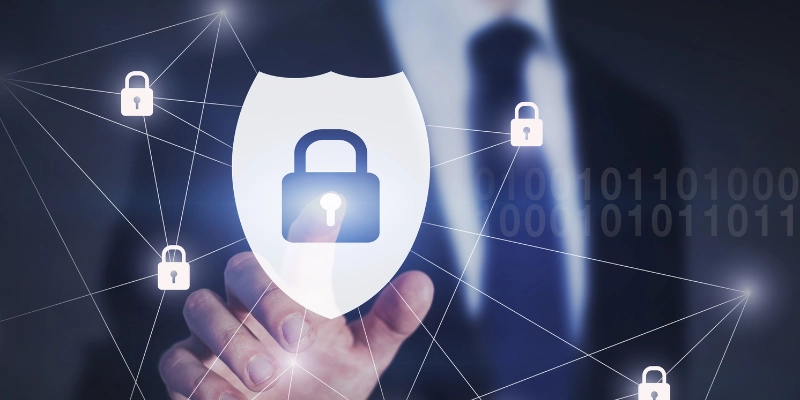What is Cybersecurity?
Cybersecurity has become a critical component of our everyday lives in today’s digital age. From protecting our personal information to securing corporate data, the importance of cybersecurity cannot be overstated. But what exactly is cybersecurity, and how does it work? This blog post will delve into cybersecurity, exploring its significance, the various types of cyber threats, and how to protect against them.
Understanding Cybersecurity
Cybersecurity refers to protecting systems, networks, and programs from digital attacks. These cyberattacks are usually aimed at accessing, changing, or destroying sensitive information, extorting money from users, or interrupting normal business processes. Implementing effective cybersecurity measures is particularly challenging today because there are more devices than people, and attackers are becoming more innovative.
Why is Cybersecurity Important?
The significance of cybersecurity grows as our reliance on technology increases. Here are a few reasons why cybersecurity is crucial:
Protection of Personal Information: Cybersecurity helps protect our data, such as social security numbers, bank details and login credentials, from being stolen and misused.
Business Security: Companies store vast amounts of sensitive data, from client information to trade secrets. Effective cybersecurity measures help protect this data from breaches that could lead to financial loss and reputational damage.
Prevention of Identity Theft: Cybersecurity measures prevent criminals from accessing personal data, which can be used to steal identities and commit fraud.
Safeguarding Financial Transactions: With the rise of online banking and e-commerce, cybersecurity ensures that financial transactions are secure from cybercriminals.
Types of Cyber Threats
Cyber threats come in various forms, each posing a unique challenge to cybersecurity:
Malware: Malicious software like viruses, ransomware, and spyware designed to cause damage or gain unauthorized access to a system.
Phishing: Deceptive attempts to obtain sensitive information by masquerading as a trustworthy entity in electronic communications.
Man-in-the-Middle (MitM) Attacks: Interception and alteration of communications between two parties without their knowledge.
Denial-of-Service (DoS) Attacks: Flooding a network or server with traffic to render it unusable.
SQL Injection: Inserting malicious SQL code into a database query to manipulate or steal data.
How Cybersecurity Works
Cybersecurity involves a combination of technologies, processes, and practices designed to protect networks, devices, programs, and data from attack, damage, or unauthorized access. Here’s a breakdown of how it works:
Firewalls: These act as barriers between trusted internal networks and untrusted external networks, controlling incoming and outgoing network traffic.
Antivirus Software: Scans and removes malicious software from devices.
Encryption: Converts data into a code to prevent unauthorized access, especially during transmission.
Multi-Factor Authentication (MFA): Requires two or more verification factors to gain access to a resource, reducing the risk of unauthorized access.
Intrusion Detection Systems (IDS): Monitors network traffic for suspicious activity and potential threats.
Security Information and Event Management (SIEM): Provides real-time analysis of security alerts generated by applications and network hardware.
Best Practices for Cybersecurity
To enhance your cybersecurity posture, consider the following best practices:
Regular Software Updates: Ensure all software, including operating systems and applications, are updated to patch security vulnerabilities.
Strong Passwords: Use complex passwords that combine letters, numbers, and special characters, and change them regularly.
Data Backup: Regularly back up data to a secure location to mitigate the impact of data loss.
Employee Training: Educate employees about cybersecurity best practices and how to recognize potential threats.
Access Control: Limit access to sensitive information based on roles and responsibilities.
Why Choose Jeebr Internet for Cybersecurity?
Jeebr Internet is not just a leading internet service provider in Mumbai; we are committed to ensuring our customers’ online safety. Here’s why you should choose Jeebr Internet for your cybersecurity needs:
Comprehensive Protection: Our services include robust cybersecurity measures to protect against various cyber threats.
Expert Support: Our team of cybersecurity experts is available 24/7 to assist you with any security concerns.
Advanced Technologies: We use the latest cybersecurity technologies to safeguard your data and privacy.
Customized Solutions: Tailored cybersecurity solutions to meet the specific needs of individuals and businesses.
Continuous Monitoring: Proactive monitoring of networks to detect and respond to potential threats in real time.
Educational Resources: Providing resources and training to help you stay informed about the latest cybersecurity trends and best practices.
Conclusion
In an increasingly digital world, understanding and implementing cybersecurity is essential to protect against the ever-evolving landscape of cyber threats. By adopting robust cybersecurity measures and best practices, you can safeguard your personal and business information from potential attacks. Choose Jeebr Internet for reliable and comprehensive cybersecurity solutions that ensure your online safety and peace of mind.
Stay safe online with Jeebr Internet — your trusted partner in cybersecurity.
Contact us today at 1800 3157 444 or visit www.jeebr.net to learn more. Like us and follow us on Twitter: www.twitter.com/jeebrinternet Facebook: www.facebook.com/jeebrinternet, Instagram: www.instagram.com/jeebrinternet and LinkedIn: www.linkedin.com/company/jeebr. Stay connected, stay entertained!











